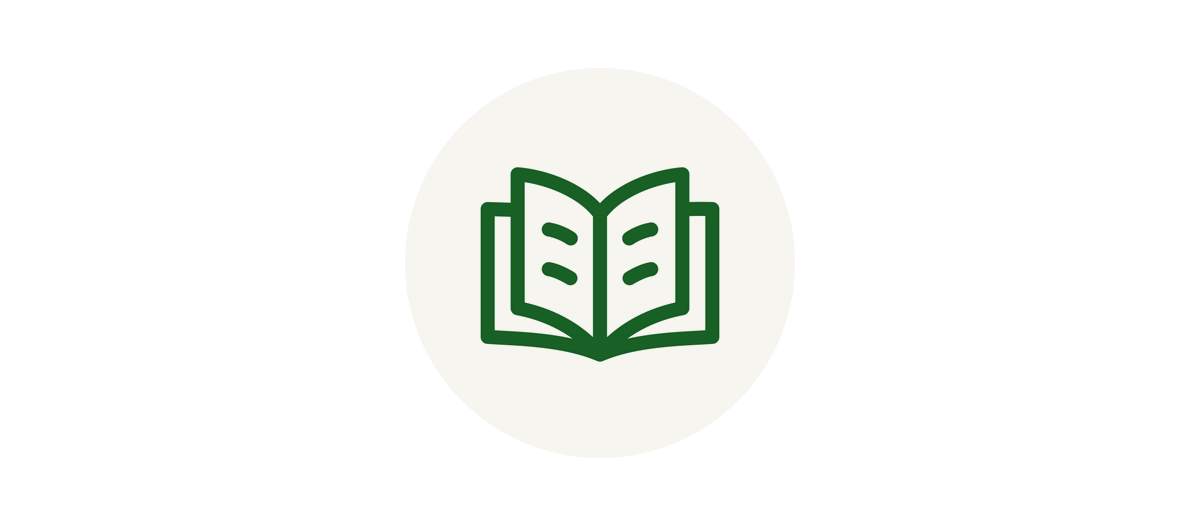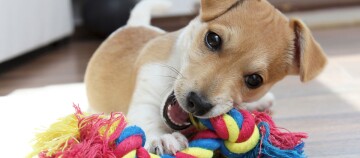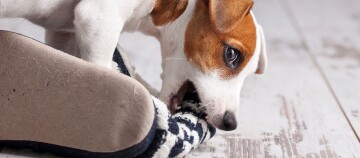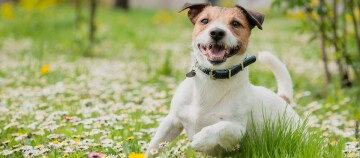House Training a Puppy - Read How to Successfully House Train Your Puppy
03.01.2023 - Reading time: 5 minutes
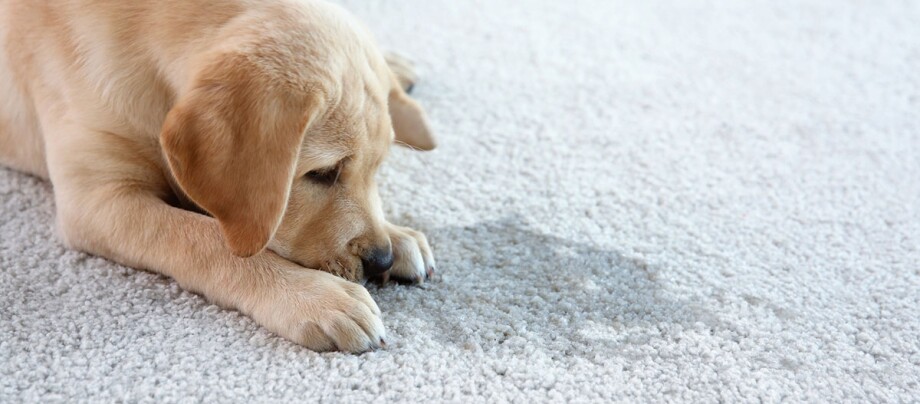
Have you decided to give a puppy a new home? The joy of a new addition to the family is wonderful. However, the first task comes when the dog arrives. The puppy has to become house-trained and do its business outside as soon as possible. In this guide, read how to successfully house train your puppy!
Housetraining - a laborious task in the beginning
Puppies have to relieve themselves particularly often early on, because they first have to learn to control their bladder and intestinal sphincters. Physically, they are able to do this at about 14 weeks. That’s why housetraining is mainly all about practice – approach the whole thing as calmly as possible, but in a committed way.
As a rule, puppies need to relieve themselves immediately after sleeping, eating, drinking and playing. Pay attention to the signals your puppy sends out and try to get ahead of it. If it is already circling and sniffing the carpet, it’s almost too late. For the first two weeks, you should set a rhythm of taking your puppy outside every two hours.
Fortunately, dogs are very clean by nature and pay close attention to keeping their home clean. However, puppy first need to learn where the door to the outside is in its new home and what is and is not allowed here. Some puppies understand where they are allowed to go after just one mishap, while others are slow learners who need several weeks of training. Here, patience is key.
Off outdoors!
When going outside regularly, it is best to quickly provide your pet with a green area, sand or similar. This not only meets the animal needs, but also has the advantage that it will later prefer to do its business in the green area and not on the pavement. In addition, it helps to have a peeing area close to the home, so if you are in a rush or the weather is very nasty, you don’t have to walk too far.
In order for your puppy to relieve itself on your signal later on, you can support the release each time with a command such as “Go potty”. In time, it will associate this signal with the action. This is especially useful on a long car journey, because you can use this word to encourage your dog to do its business beforehand or during breaks.
Once your puppy has successfully done its business in a suitable place, praise it profusely. Please note: do not disturb it during this time, young dogs in particular can easily be distracted and then you have to start the process all over again.
When the accident has happened...
If there is an accident, clean the area without saying anythingt and without scolding the pup, because the puppy should not become afraid of you. This could lead to it becoming even more detached when you are not present or the whole issue becomes stressful for it. Clean the soiled area with a product that neutralises the smell of urine thoroughly – this way you will prevent re-contamination (dogs love areas already “marked” with urine).
Puppies and young dogs also pee out of joy or fear. They do this because they cannot yet control their bladder sphincters when they are excited. It would be very bad for your dog’s development if you scolded it for doing this.
Housetraining in puppies: tricks
Dog toilet: if you live in flat on an upper floor, for example, you can’t rush down in the lift as quickly as the mishap happened. A dog toilet can help here. You can make one yourself or buy one, and there are now several different types. This toilet can help with the transition to walking or, for example, prevent major mishaps at night when you aren’t quick enough in putting on your slippers. The goal is, of course, for the dog toilet to no longer be needed after a certain time.
Clicker: you can combine the exercise with a clicker training. Click and praise the puppy’s everything the puppy does with a clicker. After a short time, your puppy will be able to relieve itself on command.
Please be aware that house training a puppy is not a job for a child. However, your kids can of course support you.
Patience and consistency on the way to a house-trained dog
Housetraining a dog requires patience and consistency. It is important not to scold the dog when it does something wrong, as this often makes the situation worse. Make sure that your adult dog is never left alone in the home for more than four hours. Puppies should not be left alone at all.
Help, my dog is not housetrained!
If your dog is not housetrained, this may also be due to physical reasons. It is best to talk to your vet and ask for advice. If an organic disease is ruled out, you should consider psychological causes. Contamination of their own “territory” can also be interpreted as an act of protest or a sign of stress. In difficult cases, consult a vet and seek support from a specialist dog trainer.
